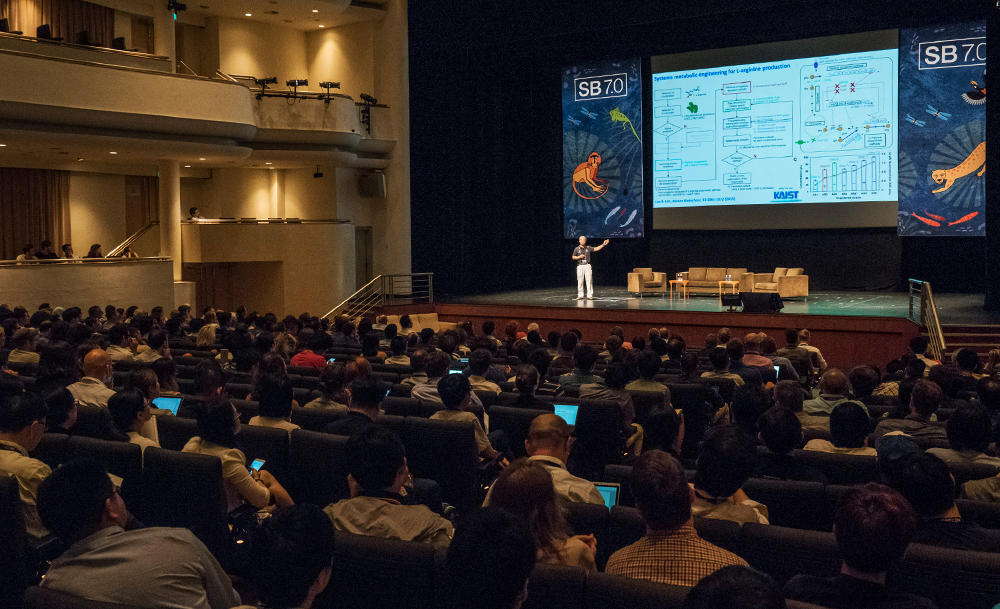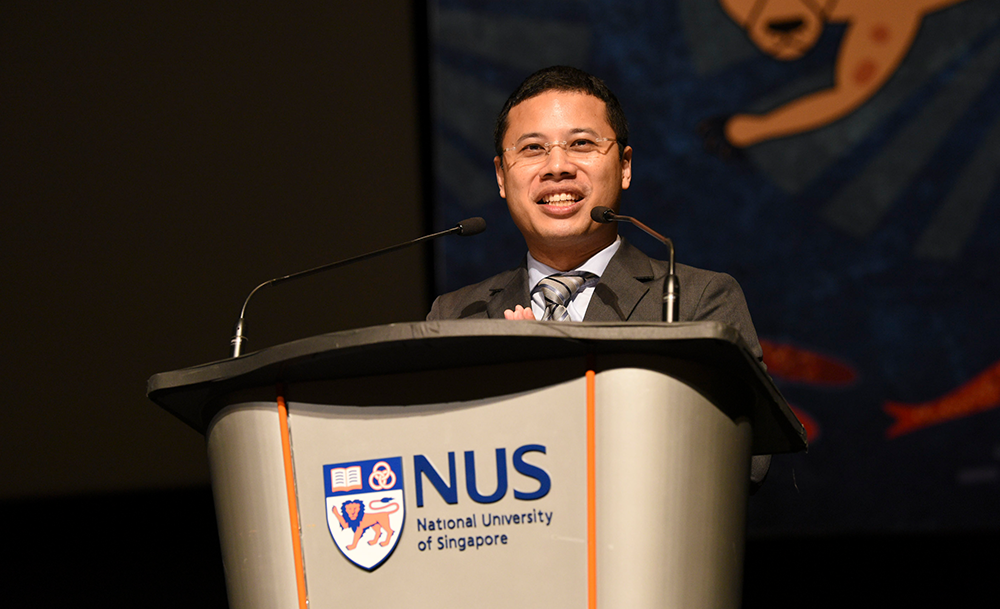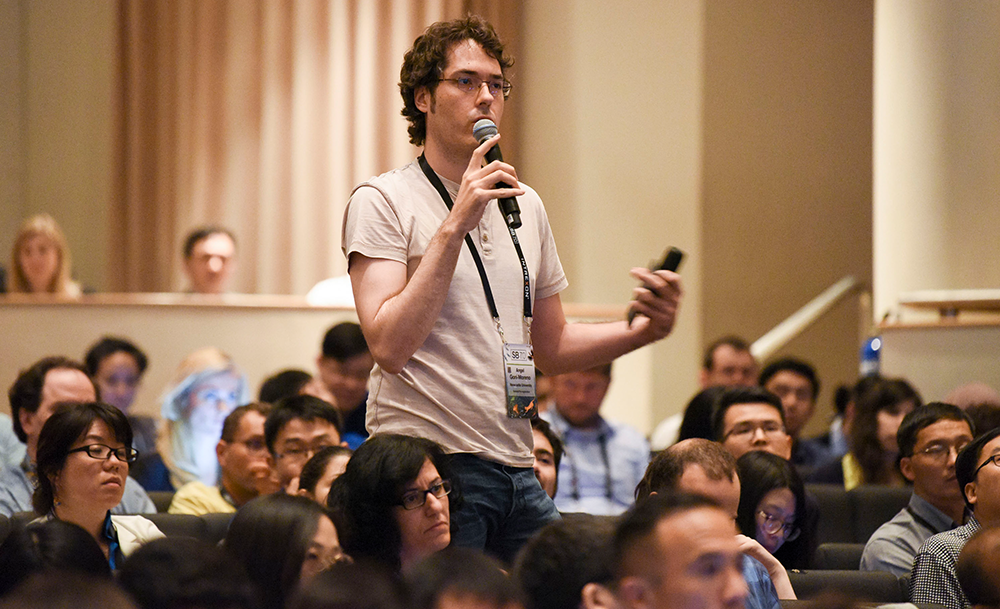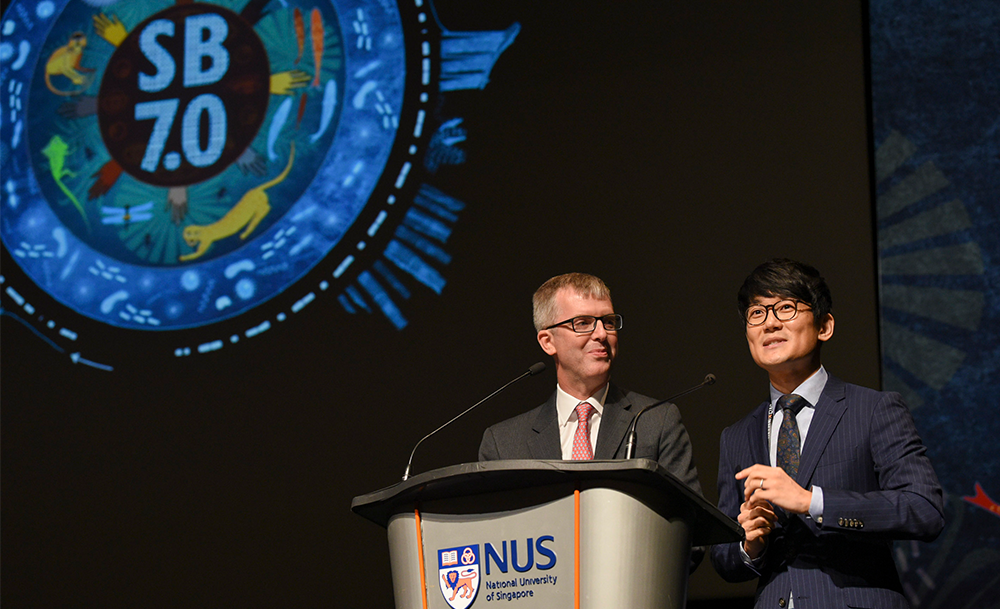The Seventh International Meeting on Synthetic Biology (SB 7.0)
Published: 13 Jun 2017

Imagine a world where extinct animals return to life. Or a world where movies and music can be stored in DNA.
These and other ideas could be future reality in a world that is seeing the transformational changes being brought about by synthetic biology.
Already, it is being used to change or challenge almost every facet of today’s world from provisioning foods, fuels, medicines, and clothing, to enabling new modes of critical design, fashion and art.
It is also the focus of discussions at the National University of Singapore (NUS) this week, where NUS Synthetic Biology for Clinical and Technological Innovation (SynCTI) is co-organising the Seventh International Meeting on Synthetic Biology (SB 7.0) from 13 to 16 June 2017 at the NUS University Cultural Centre. The conference will bring together a global community of synthetic biology practitioners to share, learn and debate on the latest efforts in the rapidly advancing field, and to build synergistic global partnerships.
The conference lends support to Singapore’s efforts to encourage interactions and co-development between industry and institutes of higher learning to augment manpower development for a new bio-based economy, as well as speed up translation of expertise for industry applications. About 900 participants from over 40 countries attended the conference, with more than 100 speakers presenting in 12 thematic sessions.
First launched in 2004, the Synthetic Biology Conference series is the world’s foremost professional meeting in the field of synthetic biology. Previous conferences have taken place at MIT, University of California, Berkeley, Stanford University and Imperial College London.
“Biology is central to all of human existence and nature. While synthetic biology is already being used to advance many aspects of our life, to ensure that synthetic biology can benefit all people and the planet, I believe the international synthetic biology communities must work together. SB7.0 will provide a unique platform for a global community of synthetic biologists to gather and plan together for collective growth of our science, its beneficial applications, and responsible practices,” said Associate Professor Matthew Chang from NUS Yong Loo Lin School of Medicine’s Department of Biochemistry. He is also Director of SynCTI and the Singapore Consortium for Synthetic Biology (SINERGY).
Assoc Prof Drew Endy from Stanford University’s Bioengineering Department and President of The BioBricks Foundation, one of the co-organisers of the conference, said synthetic biology had made significant technical progress since the first conference in 2004.
“Gene synthesis costs have been reduced 200-fold, all of Boolean logic has been realised across a diversity of organisms, and biosynthesis via 30 enzyme pathways is becoming routine.”
“I am very excited to see the entire synthetic biology community gather under one roof in Singapore. The field has grown from strength to strength over the past 14 years, and now is the time to work together to chart our next decade’s course,” said John Cumbers, the founder of SynBioBeta, one of the co-organisers of the conference.
To excite the younger generation in this dynamic field of synthetic biology research, the Singapore Consortium for Synthetic Biology (SINERGY) has offered 300 SINERGY Fellowships to students, researchers and leaders in local tertiary institutions (junior colleges, polytechnics and universities) to attend the conference.
The Guest-of-Honour, Mr Desmond Lee, Minister, Prime Minister’s Office, Second Minister for Home Affairs, and Second Minister for National Development, opened the conference on 13 June.
“I believe that SB7.0 will take Singapore’s synthetic biology to another level by showcasing to the world our innovation and science, and enabling us to forge new cross-border friendships, facilitate international collaborations and build global partnerships. By working hand in hand with the international communities, Singapore can become a leading biological design hub where synthetic biology is seamlessly translated into impactful technologies that make a difference in all sections of civil society,” said Assoc Prof Chang.
For more information on the conference, please visit http://sb7.info
Read more on NUS Highlights and see press release.
News Coverage
- The Straits Times, 9 June 2017, Science, pB15
- The Straits Times, 9 June 2017, Science, pB15
- The Straits Times online, 13 June 2017
- Channel NewsAsia, Singapore Tonight, 12 June 2017 (from 39:17m)
- Channel 8 News, Hello Singapore, 13 June 2017




